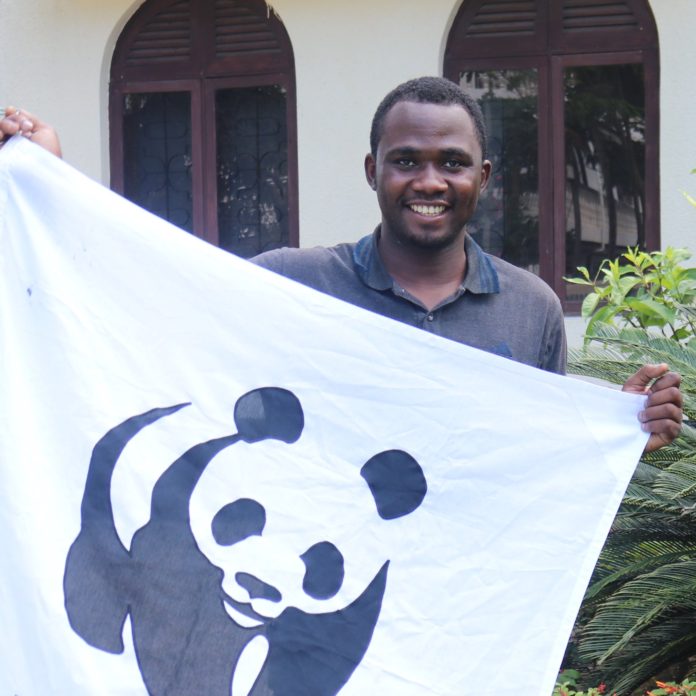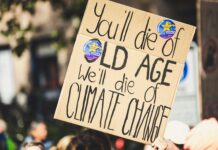By Winnie Kamau
This year’s World Wide Fund for Nature (WWF) Africa Youth Awards, went to Tanzania in a colorful award ceremony held in Livingstone, Zambia.
Iddi Hamis Nyachenga from Tanzania won the award for his innovation that tackles the deforestation problem in his home country and helping reduce greenhouse gas by recycling agricultural by-products into charcoal briquettes for cooking. He also raises awareness on how to recycle agricultural by-products in his community.
Every year, WWF recognizes outstanding African youth who are protecting the planet and advancing the conservation agenda through the prestigious WWF Africa Youth Awards.
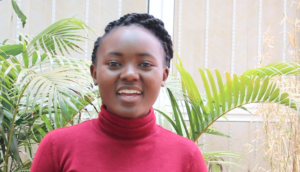
A young Kenyan aged 23 years old emerged first runners-up in a contest which coincided with WWF’s Global Conservation Forum, attended by youth drawn from around Africa.
For the 23-year-old, her story resonated with the majority of the youth who engage and advocate for change through social media. It all started in 2016, a seven worded comment was left by a reader in the comment section of a climate change article written by the then a 20-year-old second-year University student. The comment read ‘What are you doing for the community?’.
The seven words prompted Unelker to take chance and write a proposal to the Rockefeller Foundation and the Kenya Community Development Foundation (KCDF). She needed resources to do something and ignite change in her community. To her utter surprise, she got a grant that saw her start a community-based project on climate change awareness and green technologies in Nyamira county, Kenya.
The project dubbed Konservation saw Unelker partner with local women entrepreneurs and women-owned kiosks to distribute solar lamps to homes that lack access to electricity and also raises awareness about climate change with volunteers from the African Youth Initiative on Climate change (AYICC).
So far the project has trained over 1,500 students on climate change mitigation and adaptation, and also impacted 150 homes, that now have access to clean and affordable energy.
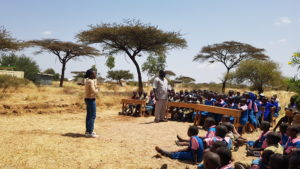
“It was until I started doing it, that I saw the change and the impact of the little things we do for the environment. Just get up and do something. If you get up and do something you never know the positive impact it will have on the environment and future generations.” said Unelker.
Unelker who is also a Wangari Mathai ambassador for the Green Belt Movement and a student, says her dream to stop whaling motivated her to take up a degree program in Environmental Conservation and Natural Resource Management at the University of Nairobi.
“It is more than a career path.” She says “It’s passion. For me, it’s what I love. In my childhood, I interacted a lot with the Indian ocean, my parents worked in Mombasa. One day I got wind that a baby whale had been trapped in the coral, it was washed to the shore, usually, Kenya Wildlife Service officers would rescue such whales and take them back to the ocean, but on this day, the community was there’s first.
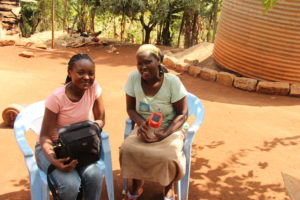
When I went to see it, it was still alive and then people started cutting blubber, the thick layer of fat, while the baby whale was looking. It died a slow and painful death. I was shocked and mum but it was clear to me that I have to do something to stop them. There and then I knew I wanted to become a stop-whaling warrior. I started watching documentaries on how to protect whales.”
Her message of hope and the advocacy towards sustainable environmental conservation remains one of the pillars of Konservation.
“Nobel peace prize laureate Professor Wangari Maathai said that I know this is the dream we have for Africa. An empowered Africa. Those of us who understand and who feel strongly, must not tire. We must persist. The burden is on those who know. We are the ones who must take action.”
The young conservationist who hopes to expand Konservation beyond Kenyan borders added “ Professor Wangari Maathai challenges those of us who are in a position to help, to do something in our community. That’s all about service. Community development is our duty. As members of a developing continent, young people need to understand that we should not live for ourselves, we need to offer service to others and play our part in building our communities, to whom we owe our origin and our progress.”

